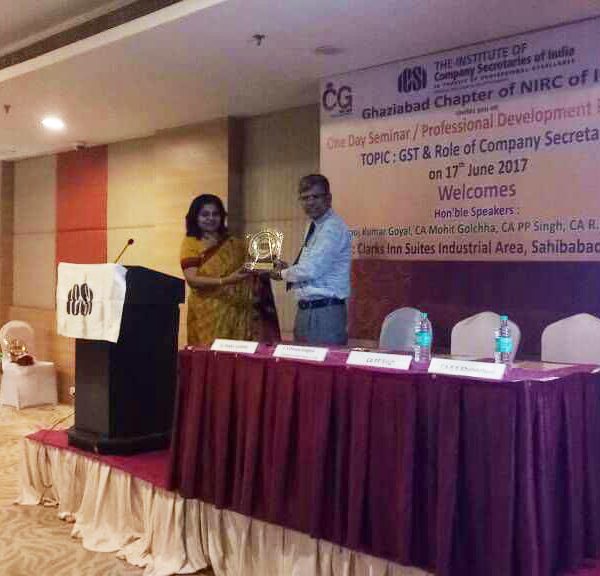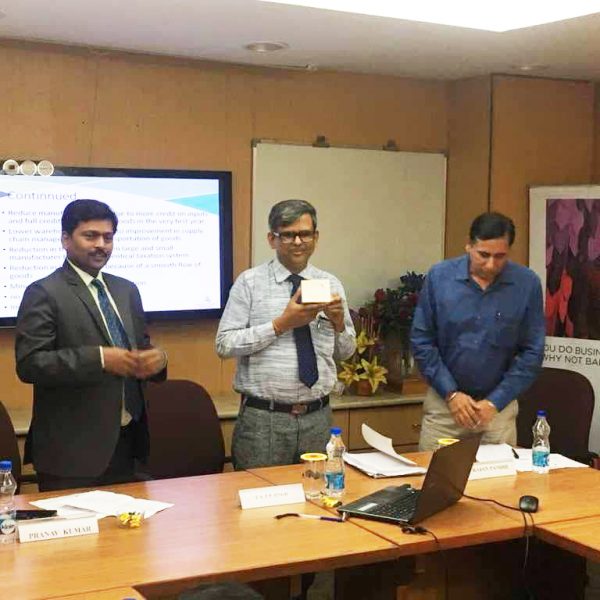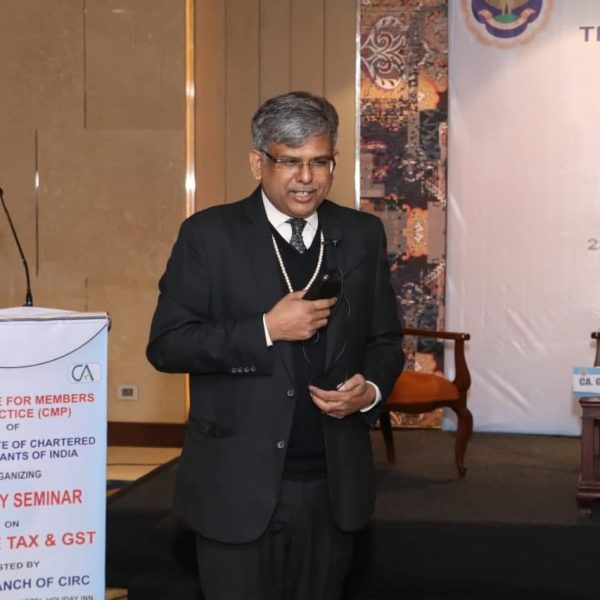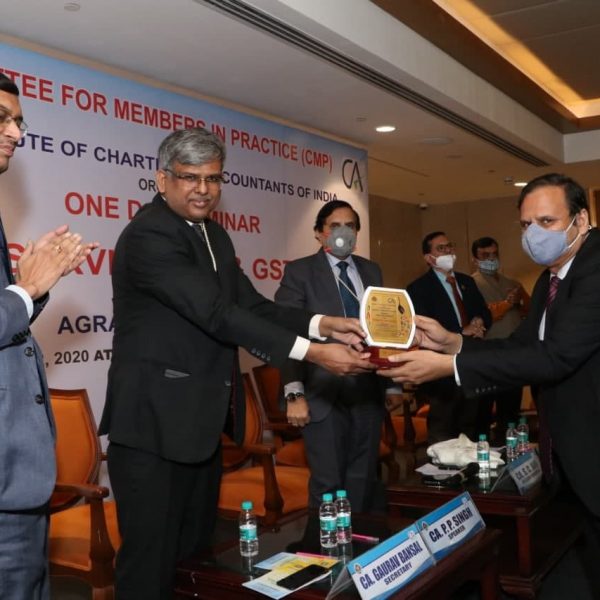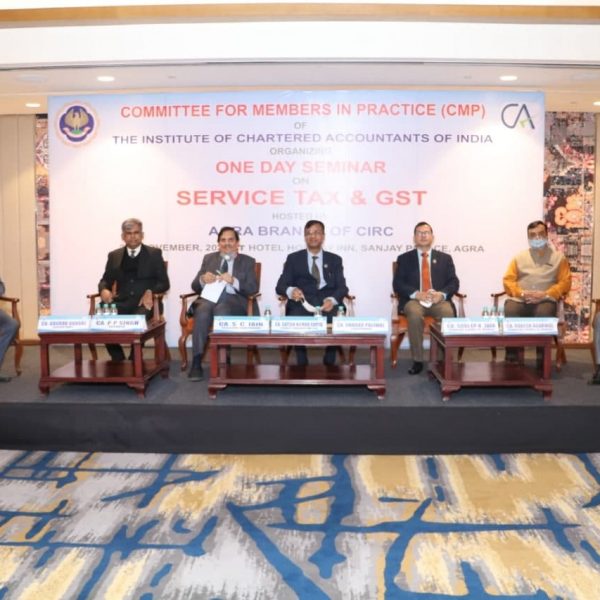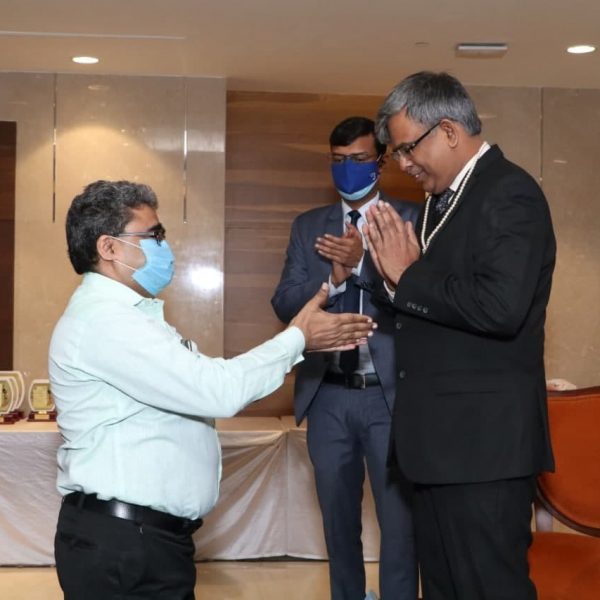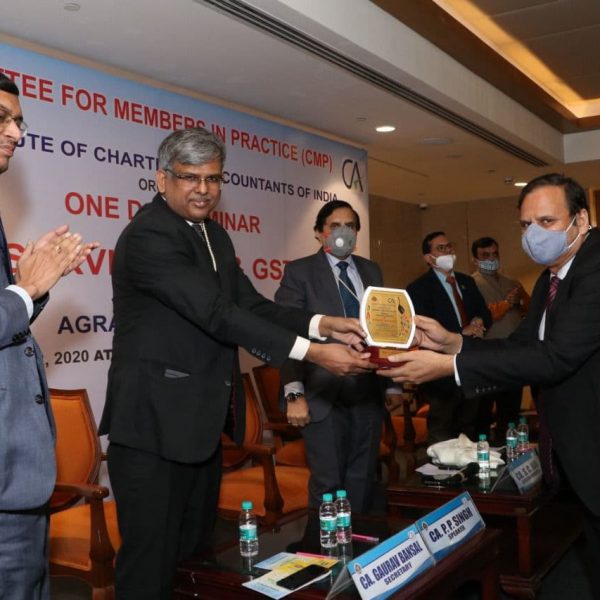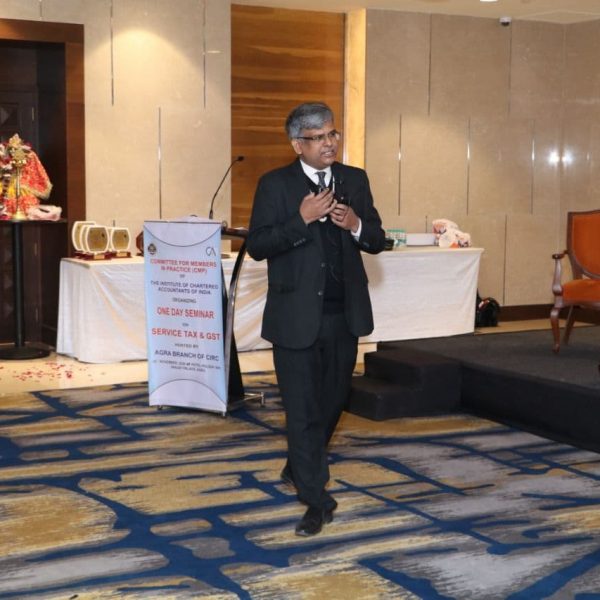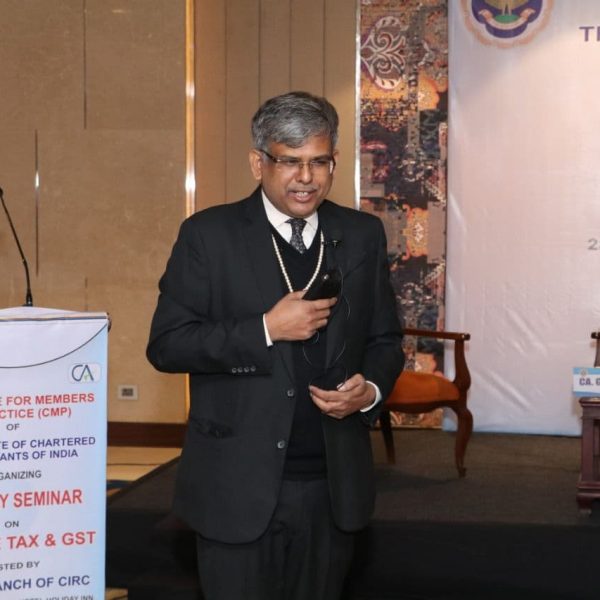JURISDICTION OF SUPREME COURT
Introduction The Supreme Court has wide jurisdiction with respect to various matters and the jurisdiction of the Supreme Court is of so many types such as original jurisdiction, writ jurisdiction, appellate jurisdiction, advisory jurisdiction, Review jurisdiction, etc., explained here under:
Type of Jurisdiction
- Original jurisdiction- A-131
- Appellate jurisdiction A-132 to 135
- Advisory jurisdiction-A-143
- Writ jurisdiction A-32
- Special leave petition- 136
- Review jurisdiction A-137
- Complete justice- any decree, order, or judgment- A-142
- Binding Nature of Order of Supreme Court – A-141
Note: Writ Jurisdiction of Hon’ble Supreme Court is Concurrent with High Court under A-226
Original jurisdiction of Supreme Court A-131:
- Supreme Court has original jurisdiction in any dispute
- Between Govt. of India and one or more states
- Between Govt. of India & one or more state(s) on one side and one or more state(s) on the other side
- Between two or more state(s).
Note: Private parties cannot bring suit in this article, only the Centre or state can bring suit involving a question of law or facts on which the existence of legal rights depends.
Further, as per Article 71, All doubts and disputes arising out of or in connection with the election of the president or vice president shall be inquired into and decided by the supreme court and the decision of the supreme court shall be final.
Leading Case Laws: Dispute outside original jurisdiction :
- Dispute arising out of any treaty, agreement, covenant, engagement, or other similar instrument entered into or executed before the commencement of constitution and continue post commencement of constitution – proviso to A-131
- Supreme court jurisdiction excluded by a law made by parliament with respect to the dispute of use, distribution, or control of water of inter-state river or valley, A-262 (2)
Leading case laws:
State of Karnataka Vs. Union of India (1978 ) (SC)
Facts: central govt. has appointed an inquiry commission against the chief of Karnataka u/s 3 of the Commission of Inquiry Act 1952 to probe into the charges of corruption, nepotism, favorites, and misuse of power against which suit filed before SC under this article declaring the inquiry illegal and ultra vires as it is against the federal structure.
Held: it is not a valid suit under article-131 as the inquiry is against the chief minister (individual) and not against the state of Karnataka therefore, not against the federal structure but the suit is maintainable as decided by majority of 4:3
Writ jurisdiction A-32:
- Hon’ble SC has the power to issue direction, orders, and writs including writs in the nature of habeas corpus, mandamus certiorari, prohibition, quo warranto whichever is appropriate in a particular case.
- A-32 in itself is the part of fundamental rights in part III of the COI.
- The right of the writ shall not be suspended except otherwise provided by the constitution itself. Refer A-358 / 359.
- In the case of a National Emergency declared under A-353 the fundamental rights under A-19 are suspended automatically in the case of war or external aggression but not in the case of armed rebellion
- Fundamental rights in A-20/21 are not suspended at all and we can approach the SC/HC,
- other fundamental rights could be suspended if the president so orders A-19 – Freedom of Speech / Association forming, Free Movement, business and profession
A-20(protection against conviction)/21 (protection of life and personal liberty
Note: Writ jurisdiction of the Supreme Court is concurrent with that of the high court under A-226
The writ jurisdiction of the high court is even wider than the writ jurisdiction of SC . Before the high court, we can approach to enforce fundamental rights in part III of the COI and for any other purpose.
Habeas corpus is a writ where we can approach the Supreme Court or high court against illegal detention. The writ is issued against a person who has detained another person without the authority of law to bring such detained person before a court of law and the court may order for release of such illegal detained person. The purpose of such writ is to give quick and immediate remedy to un low fully detained person in public or private custody. Application for such writ could be made by an illegally detained person or any other person on behalf of such person. Such writ can be issued to protect him from treatment inside jail or detention. Such writ issued against mala fide exercise of bested ottherithy. If the person detained is not produced before the magistrate within 24 hours of arrest, such a writ could be issued. For custody of children also such writ could be issued if a family dispute, or divorce matters.
Mandamus means order: such writ could be issued by way of order by the superior court to the public authority to do or abstain/refrain from doing while discharging public duty or statutory duty. it can be issued only to a public authority to act lawfully and not against a private person such as to enforce an obligation arising from a contract. If the duty of public authority is discretionary in nature, such a writ could not be issued
Prohibition: Such writ is issued to prevent an inferior court or tribunal if their act exceeds jurisdiction or is contrary to the principle of natural justice. This writ could be issued where excess exercise of jurisdiction by authority or exercise of jurisdiction even if such court or tribunal is lacking of jurisdiction.
Certiorari: writ of certiorari issued by a superior court being SC or HC to an inferior court or body or authority exercising Quasi-Judicial function to remove a suit from such inferior court or authority and adjudicate upon the validity of the proceedings. It may be issued before trial to prevent excessive or abuse of jurisdiction by such inferior court or authority by way of withdrawal of the case and placing it before a higher court for proper adjudication. If the trial is already completed then such a writ could be issued to quash an order made without jurisdiction or in violation of the principle of natural justice.
High Court can interfere if the tribunal or inferior court erroneously refuses to admit admissible evidence or erroneously admits inadmissible evidence, in such a case of error of law, can be corrected by a writ of certiorari. Such writ is not like an appeal for re-appreciation or evaluation of evidence or correcting errors in drawing inferences but to prohibit excessive exercise of jurisdiction. This writ cannot be issued against private person.
Quo-Warranto: Quo-Warranto means “What is your authority”? under this writ holder of a public office may be called upon to show to the court under what authority he holds the public office to prevent a person not legally entitled to hold a particular public office so that court may pass an order preventing the holder from continue in such office and court also declare the office vacant. Such writs are issued only in the larger public interest. Where the holder of an office continues for a long time and there is no complaint against him the court refused to issue writ as it would be vexatious. Here the moot question for the issue of writ of quo-warranto is to satisfy the court that:
- office in question is a public office and
- Such office held by a person without legal authority
Difference between prohibition and certiorari
| 1. |
When the inferior court takes up the hearing without jurisdiction the aggrieved person may approach for a writ of prohibition forbidding the inferior court from continuing the proceedings, if the court hears the cause or matter and gives a decision in the exercise of excessive jurisdiction or without following the principle of natural justice, the aggrieved may approach for quashing the order on the ground of jurisdiction under the writ of certiorari |
| 2. |
If the issue is pending before the court writ of prohibition to prevent further proceedings and the certiorari writ to quash the earlier order therefore, the writ of prohibition is preventive in nature whereas the writ of certiorari is curative. |
| 3. |
Both prohibition and certiorari are only against court or quasi-judicial authority acting under judicial authority and not against public authority where whereas to prohibit or restrain a public authority from doing certain acts or abstain from doing certain acts under administrative or executive capacity writ of mandamus could be issued. |
Appellate Jurisdiction:
- Appellate jurisdiction of SC can be divided into
- Constitutional Matters –A-132
- Civil Matters-A-133
- Criminal Matters-A-134
- SLP-A-136 .
- SC is the apex court and highest court of appeal
Note: Appeal shall lie to the SC against any judgment, decree, or final order of an HC whether in a civil, criminal, or other proceedings where
- HC issued a certificate under A-134-A and
- The case involved a substantial question of law as to the interpretation of the constitution.
Appellate Jurisdiction of SC – A-132:
- Appeal to SC only against final order, decree, or judgment.
- Appeal against single judge order of HC can be preferred before a division bench of the same HC. However, in exceptional cases having great importance and early decision required in the public interest, the appeal may be preferred before the SC also The Election Commission vs Venkata Rao (SC) (1953).
- The issue may be civil, criminal, or other proceedings
- Only Substantial questions of law can be the subject matter of appeal if certified by the HC
- If HC does not certify under A-134(A), the remedy is SLP which is the discretion of SC to admit or not to admit
Note: Final order means an order deciding the issue and it may include an issue decided in favour of the appeal.
Other proceedings may be revenue matters, tax matters, arbitration matters, etc.
Meaning of substantial question of law:
- If there is a divergent view of different HC. and no judgment of SC.
- HC certifies that the matter involves a substantial question of law.
- Interpretation of Constitution Having Large Public Interest
Appeal in Civil Cases before SC (A-133):
- The case involved a Substantial question of law and in the opinion of the SC, the said question is to be decided by the SC.
- restriction: in this appeal, before SC, (1.) the appellant cannot raise new ground not raised earlier before HC or subordinate court & (2) certification by the HC that there is a substantial question of law, and (3) there must be a provision in the law for appeal before SC.
- Example- If the income tax act provides for an appeal before SC against the order of HC then only we can prefer an appeal before SC, in other words, if the law has no provision no appeal can be preferred before SC.
Note: Civil proceedings mean where a person seeking legal remedy against infringement of his civil rights against another person or state and if the claim proved would result in a declaration by the court for payment of a debt, damage, compensation, release of assets, possession of property, etc.
Appeal in criminal matters in certain cases A-134:
- HC reversed the acquittal of the accused into a death sentence.
- HC has taken the case of subordinate court and convicted the accused to the death sentence.
- HC certifies that it is a fit case for appeal to SC. In such a case appeal can be preferred subject to provision of A-145 (rules of SC) and conditions imposed by HC.
Note: In (a) and (b) certificate from HC under A-134(A) is not required whereas in (c) case certificate of HC is required.
SLP – A-136:
- SC in its discretion may grant SLP where appeal from any judgment, decree, order, determination, sentence, or matter passed or made by any court or tribunal except the armed force tribunal.
- It can be admitted in any order maybe final or interlocutory judgment or order.
- SLP can be admitted against the order of any court or tribunal.
- SLP can be admitted against any type of order may be civil, criminal, tax, labour, revenue, etc. where a certificate is not issued by HC for preferring appeal before SC.
Note: It is the discretion of SC to admit the SLP or to dismiss the same whereas appeal is a right vested under the provisions of the relevant statute.
Advisory Jurisdiction A-143:
- Dispute arising out of any pre-constitutional treaty, agreement, covenant, engagement, or other similar instrument entered into or executed before the commencement of the constitution and continue post commencement of the constitution, the president may refer the dispute to SC for opinion and SC shall after such hearing report its opinion to the president. SC is bound to give an opinion but for the president, it is not binding and is of only advisory nature.
- Any Question of Law or Facts of public importance that has arisen or is likely to arise- the president may refer such questions to the SC for opinion, The SC may report its opinion to the president after necessary hearing. Here SC has the discretion to express opinion or not.
Note:
- Similar provisions in Canada in Section 60 of the Canadian Supreme Court Act,1980 but no similar provisions in the USA or Australia, etc.
- Similar provisions were also in the Government of India Act, of 1935 empowering the governor general to consult the federal court
Whether advice of the president by the SC is binding on other courts with reference to A-141?
- In Kerala Education Bill case (1958) (SC)-not binding.
- Special court bill case (1979) (SC) views expressed by SC in its advisory jurisdiction is binding on all courts because “It would be strange that decision of SC on the question of law in a dispute between two private parties shall be binding on all courts in the country but advisory opinion after issuing notices to the interested parties after hearing and full consideration of the question raised the same is not binding”. The court held that a clear view of SC in the exercise of advisory jurisdiction is binding on all courts.
Note: A-141 says law declared by SC shall be binding on all courts within the territory of India.
Judicial review jurisdiction:
- The power of judicial review is derived from A-32 and A-136.
- The review power of SC includes:
- Constitutional review
- Executive action review-whether such action is consistent with the constitution
- Fundamental rights protection.
- Judicial activism
- PIL
- The doctrine of basic structure
- Amendment in the constitution under A-368
Review jurisdiction of own judgments A-137:
- SC is empowered to review its own judgments however, such power could be exercised under a rule made by SC under A-145 by the court.
- Under section-114, order 57 rule-1 of the CPC a review will lie on:
- a) Discovery of new important matters
- b) Mistake or error on face of the record.
- c) Any other sufficient reason.
Note:
- In review, an error of a substantial nature only can be reviewed.
- Review jurisdiction can be exercised only on glaring omissions or patent mistakes crept in earlier decisions due to judicial fallibility – Vikram Singh alias Vicky Walia Vs. State of Punjab SC.
Curative petition: Rupa Ashok Hurra vs Ashok Hurra (2002) (SC): Requirements of curative petitions are :
- Likely a miscarriage of justice
- Violation of the principle of natural justice
- Petition to three judges bench who has passed order.
- If the majority concludes a need for a hearing, it will be before the same bench.
- The court reaffirmed that litigants are barred from challenging the final decision
- Certificate of senior advocate relating to the fulfillment of the requirement
Note: The case was a matrimonial dispute where a decree of divorce by mutual consent was heard wherein Rupa Ashok Hurra had earlier given consent for divorce but later on he withdrew the consent.
Residuary jurisdiction complete justice A-142:
- Supreme Court can pass any judgment, decree, or order for complete justice in the matter pending before it.
- Such power is inherent power in the SC and can be used for complete justice.
- Such decree or order shall be enforceable throughout the territory of India in the same manner as law made by parliament
- Important cases:
- Union Carbide Corporation Vs. union of India 1991 (SC)
- State of UP vs Dinesh Chandra Chauhan (2016) (SC)- dissolution of marriage waving statutory period where mutual consent against section-13B of the Hindu Marriage Act
- Sukhendu Das vs Rita Mukherjee – the dissolution of marriage allowed-unworkable beyond salvage
- Ayodhya Ram Temple dispute case M Siddiq (D) Thr Lrs vs Mahant Suresh Das & Ors
- State of Tamil Nadu and Ors vs. K. Balu and Anr- Ban on liquor within 500/220 mtrs. From National or State Highway
Ancillary Power A-140: Parliament by law confers supplemental power to the SC to enable the court for more effectively exercise of jurisdiction conferred upon it.
Confusion: The Hon’ble Supreme Court has extensive power of interpretation of the constitution or any other law, judicial review, various other jurisdiction for justice, original jurisdiction in certain matters and concurrent writ jurisdiction as well as wide power to pass any order , decree, or judgment for complete justice.

